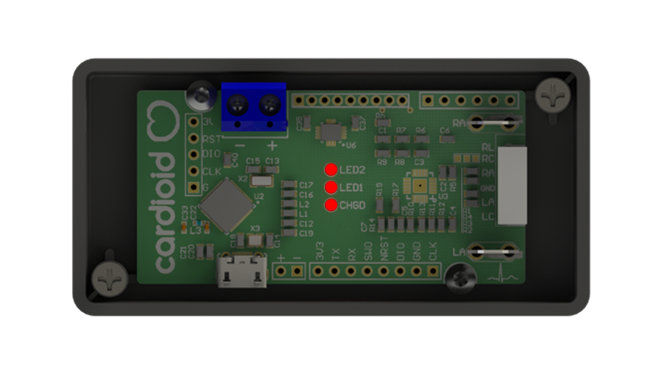
Healthcare/automotive use cases
Cardio ID
CardioWheel is an Advanced Driver Assistance System that acquires ECG (electrocardiogram) from the driver’s hands to continuously detect drowsiness, cardiac health problems, and perform biometric identity recognition. It is composed of an analog front-end, which measures the ECG signal, and an embedded processing unit that performs signal processing and sends information to the CardioGW (CardioGateway) using Bluetooth Low Energy (BLE). Note that, CardioGW is an edge computational device that developed to aggregate data on vehicles and send data to the cloud. Moreover, ECG measurement uses two dry electrodes, seamlessly integrated into a steering wheel cover, using conductive materials. This system is protected under patent WO2013109154A1.


The AI models that enable the extraction of biometric identity and drowsiness are based on machine learning algorithms applied to the cardiac signals acquired by the system. These models are trained in our cloud environment and securely transmitted to CardioWheel. GDPR compliance is guaranteed by the design of the system.
Development of software for CardioWheel followed a unit testing approach, with further integration tests carried out on a custom-built driving simulator. However, due to the number of sensors involved and the complexity of the event-triggering logic, the task of fully testing and validating such a system represents a substantial time investment. The VALU3S testing framework addresses these issues, with systematic and automated testing and verification workflows, ensuring enhanced system reliability and security. Furthermore, collecting good-quality physiological data for model training is a huge challenge, which requires novel approaches, especially in non-collaborative scenarios. An input generator covering a larger spectrum of the natural data variability, will be put in place to feed the system and help improve model accuracy.